May 9th, 2021
Consider this ice breaker as you gather for the Spotlight.
If you could amass the world's largest collection of something...what would you collect?
If you could amass the world's largest collection of something...what would you collect?
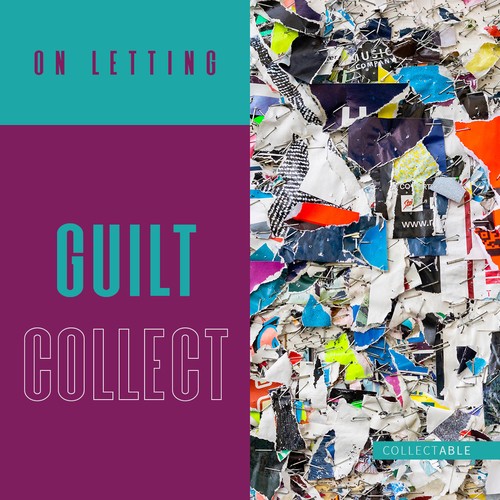
Focus 2 | Collectable
|
Now that you've answered the icebreaker question, let's think about another question - this one having to do with unusual collections.
(And welcome, by the way! It’s great that you’re here!)
(And welcome, by the way! It’s great that you’re here!)
See what this Spotlight—and series—is focused on.
Tap on the words "Focus 2" in the image below to read this Spotlight's summary.
Tap on the words "Focus 2" in the image below to read this Spotlight's summary.

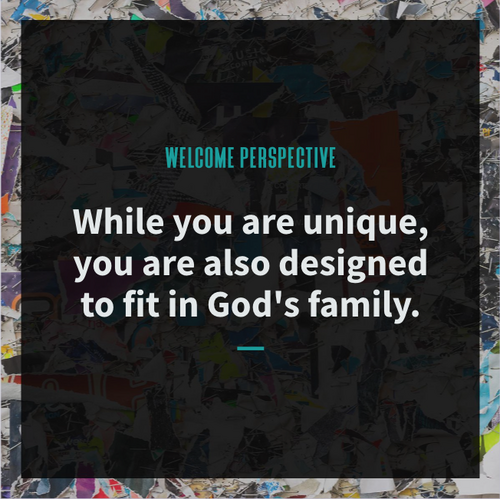
Find your groups and see God smile.
In the first Spotlight of this series, you were invited to do some "autoethnography," identifying things that make you who you are in the following categories:

If a person spent time on it, they could list many things in each of those categories and the sum of that list would be a good reflection of that person and that person alone. That’s what makes them collectible.
The parts of that list, however, are what make a person collectable. God wants this for you, and he has always wanted for you—even from the beginning when he was creating the world. In Genesis 2, God acted on that desire.
The Lord God said, “It is not good for the man to be alone. I will make a helper suitable for him.” Now the Lord God had formed out of the ground all the wild animals and all the birds in the sky. He brought them to the man to see what he would name them; and whatever the man called each living creature, that was its name. So the man gave names to all the livestock, the birds in the sky and all the wild animals.
But for Adam no suitable helper was found. So the Lord God caused the man to fall into a deep sleep; and while he was sleeping, he took one of the man’s ribs and then closed up the place with flesh. Then the Lord God made a woman from the rib he had taken out of the man, and he brought her to the man.
Genesis 2:18–22
What made the man and woman different, and what did they have in common?
If you've done so, take a look at the list you made from the autoethnographical exercise in part 1. For each one of the parts of that list, write the names of people God connected you to using that aspect of your life.
(For example, if you have “red hair” listed in the Physique section, you might write the name of a red-headed friend you bonded with because of your shared attribute.)
Start the instrumental song below, allowing it to play lightly in the background, and use the song’s duration to set the length of this activity.
In the first Spotlight of this series, you were invited to do some "autoethnography," identifying things that make you who you are in the following categories:

If a person spent time on it, they could list many things in each of those categories and the sum of that list would be a good reflection of that person and that person alone. That’s what makes them collectible.
The parts of that list, however, are what make a person collectable. God wants this for you, and he has always wanted for you—even from the beginning when he was creating the world. In Genesis 2, God acted on that desire.
The Lord God said, “It is not good for the man to be alone. I will make a helper suitable for him.” Now the Lord God had formed out of the ground all the wild animals and all the birds in the sky. He brought them to the man to see what he would name them; and whatever the man called each living creature, that was its name. So the man gave names to all the livestock, the birds in the sky and all the wild animals.
But for Adam no suitable helper was found. So the Lord God caused the man to fall into a deep sleep; and while he was sleeping, he took one of the man’s ribs and then closed up the place with flesh. Then the Lord God made a woman from the rib he had taken out of the man, and he brought her to the man.
Genesis 2:18–22
What made the man and woman different, and what did they have in common?
If you've done so, take a look at the list you made from the autoethnographical exercise in part 1. For each one of the parts of that list, write the names of people God connected you to using that aspect of your life.
(For example, if you have “red hair” listed in the Physique section, you might write the name of a red-headed friend you bonded with because of your shared attribute.)
Start the instrumental song below, allowing it to play lightly in the background, and use the song’s duration to set the length of this activity.
Now, watch this video of that same song with vocals, or sing it using the lead sheet attached below.
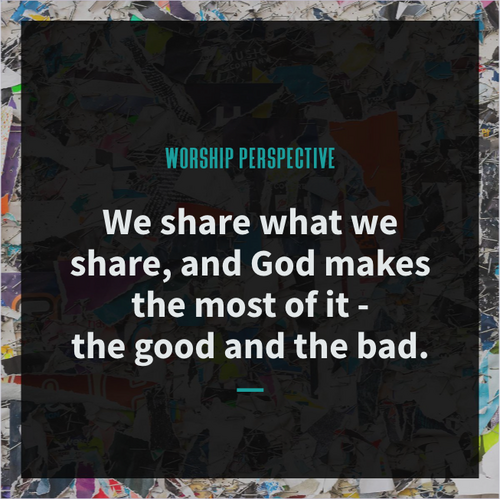
Expand the body metaphor.

There are two places in the New Testament where the church is compared to a body. Both were written by the apostle Paul.
Read and discuss these two sections, using the questions below as a guide.
For by the grace given me I say to every one of you: Do not think of yourself more highly than you ought, but rather think of yourself with sober judgment, in accordance with the faith God has distributed to each of you. For just as each of us has one body with many members, and these members do not all have the same function, so in Christ we, though many, form one body, and each member belongs to all the others. We have different gifts, according to the grace given to each of us. If your gift is prophesying, then prophesy in accordance with your faith; if it is serving, then serve; if it is teaching, then teach; if it is to encourage, then give encouragement; if it is giving, then give generously; if it is to lead, do it diligently; if it is to show mercy, do it cheerfully.
Romans 12:3–8
Just as a body, though one, has many parts, but all its many parts form one body, so it is with Christ. For we were all baptized by one Spirit so as to form one body—whether Jews or Gentiles, slave or free—and we were all given the one Spirit to drink. Even so the body is not made up of one part but of many.
Now if the foot should say, “Because I am not a hand, I do not belong to the body,” it would not for that reason stop being part of the body. And if the ear should say, “Because I am not an eye, I do not belong to the body,” it would not for that reason stop being part of the body. If the whole body were an eye, where would the sense of hearing be? If the whole body were an ear, where would the sense of smell be? But in fact God has placed the parts in the body, every one of them, just as he wanted them to be. If they were all one part, where would the body be? As it is, there are many parts, but one body.
The eye cannot say to the hand, “I don’t need you!” And the head cannot say to the feet, “I don’t need you!” On the contrary, those parts of the body that seem to be weaker are indispensable, and the parts that we think are less honorable we treat with special honor. And the parts that are unpresentable are treated with special modesty, while our presentable parts need no special treatment. But God has put the body together, giving greater honor to the parts that lacked it, so that there should be no division in the body, but that its parts should have equal concern for each other. If one part suffers, every part suffers with it; if one part is honored, every part rejoices with it.
Now you are the body of Christ, and each one of you is a part of it.
1 Corinthians 12:12–27
Discuss the above sections using the following questions:

There are two places in the New Testament where the church is compared to a body. Both were written by the apostle Paul.
Read and discuss these two sections, using the questions below as a guide.
For by the grace given me I say to every one of you: Do not think of yourself more highly than you ought, but rather think of yourself with sober judgment, in accordance with the faith God has distributed to each of you. For just as each of us has one body with many members, and these members do not all have the same function, so in Christ we, though many, form one body, and each member belongs to all the others. We have different gifts, according to the grace given to each of us. If your gift is prophesying, then prophesy in accordance with your faith; if it is serving, then serve; if it is teaching, then teach; if it is to encourage, then give encouragement; if it is giving, then give generously; if it is to lead, do it diligently; if it is to show mercy, do it cheerfully.
Romans 12:3–8
Just as a body, though one, has many parts, but all its many parts form one body, so it is with Christ. For we were all baptized by one Spirit so as to form one body—whether Jews or Gentiles, slave or free—and we were all given the one Spirit to drink. Even so the body is not made up of one part but of many.
Now if the foot should say, “Because I am not a hand, I do not belong to the body,” it would not for that reason stop being part of the body. And if the ear should say, “Because I am not an eye, I do not belong to the body,” it would not for that reason stop being part of the body. If the whole body were an eye, where would the sense of hearing be? If the whole body were an ear, where would the sense of smell be? But in fact God has placed the parts in the body, every one of them, just as he wanted them to be. If they were all one part, where would the body be? As it is, there are many parts, but one body.
The eye cannot say to the hand, “I don’t need you!” And the head cannot say to the feet, “I don’t need you!” On the contrary, those parts of the body that seem to be weaker are indispensable, and the parts that we think are less honorable we treat with special honor. And the parts that are unpresentable are treated with special modesty, while our presentable parts need no special treatment. But God has put the body together, giving greater honor to the parts that lacked it, so that there should be no division in the body, but that its parts should have equal concern for each other. If one part suffers, every part suffers with it; if one part is honored, every part rejoices with it.
Now you are the body of Christ, and each one of you is a part of it.
1 Corinthians 12:12–27
Discuss the above sections using the following questions:
- If you had to distill Romans 12:3–8 down to a single point, what would it be?
- If you had to distill 1 Corinthians 12:12–27 down to a single point, what would it be?
- In Romans, Paul says that “each member belongs to all the others” and in 1 Corinthians he says that the body’s “parts should have equal concern for each other.” The words “belong” and “have concern for” come with a certain amount of responsibility—but don’t get overwhelmed. How does an individual body part best show or live out the responsibility it has toward the rest of the body? (On the flip side of that question, what doesn’t that individual body part have to worry about?)
Apply this to “body systems.”
First, listen to the first minute—at least—of this song.
First, listen to the first minute—at least—of this song.
Look at—for reference (in case you didn’t memorize the song)—the 12 systems of the body:

The body is a unit made up of many parts, but those parts cooperate in systems. Realistically speaking, while it is very difficult to comprehend the work of the whole body of people you are connected to, you can likely start to see the impact of the systems in which you are a part.
If you’re doing this Spotlight in a group, share a story of a time you realized you were part of a system of people, working together to accomplish something greater than any individual part could have done.
This can be a story from life, school, work, church, sports—any context is fine, as long as in the story you developed an appreciation for the way a group works. Bonus points if you can also connect the group you were in to an even greater whole, like the systems of the body make up the whole body!

The body is a unit made up of many parts, but those parts cooperate in systems. Realistically speaking, while it is very difficult to comprehend the work of the whole body of people you are connected to, you can likely start to see the impact of the systems in which you are a part.
If you’re doing this Spotlight in a group, share a story of a time you realized you were part of a system of people, working together to accomplish something greater than any individual part could have done.
This can be a story from life, school, work, church, sports—any context is fine, as long as in the story you developed an appreciation for the way a group works. Bonus points if you can also connect the group you were in to an even greater whole, like the systems of the body make up the whole body!
See why God has put you into systems.
Earlier, it was noted that the body metaphor is used in Romans 12 and in 1 Corinthians 12. Both of these sections are part of letters written by Paul, so it makes sense that there would be an echo of concept between them. (What gets crazy is what comes next.)
Look up both sections—both Romans 12 and 1 Corinthians 12, and…
Answer the following questions (once you have those open):
Earlier, it was noted that the body metaphor is used in Romans 12 and in 1 Corinthians 12. Both of these sections are part of letters written by Paul, so it makes sense that there would be an echo of concept between them. (What gets crazy is what comes next.)
Look up both sections—both Romans 12 and 1 Corinthians 12, and…
Answer the following questions (once you have those open):
- What’s the heading of the section immediately following the body metaphor in each book?
- In view of that, how can we measure the health of the systems and of the whole body?
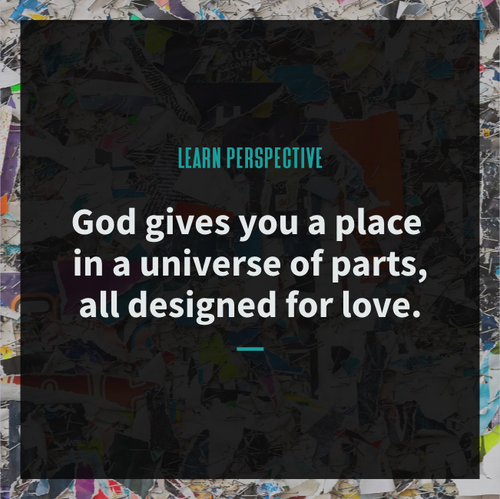
Learn about the ʔálʔal (pronounce all-all), a place to call home by the Chief Seattle Club.
As you've considered today the ways that your unique attributes connect you to others, we're taking a look here in the Serve section at a situation in which two shared attributes - being Native and being homeless - are receiving an important and exciting response in Seattle.

Click the button below or scan the QR code to read about a new housing, gathering, clinic, and café project by the Chief Seattle Club.
If you’re doing this Spotlight in a group, share what you find most interesting about the project and note one thing you found particularly thoughtful about the approach taken to the project.
As you've considered today the ways that your unique attributes connect you to others, we're taking a look here in the Serve section at a situation in which two shared attributes - being Native and being homeless - are receiving an important and exciting response in Seattle.

Click the button below or scan the QR code to read about a new housing, gathering, clinic, and café project by the Chief Seattle Club.
If you’re doing this Spotlight in a group, share what you find most interesting about the project and note one thing you found particularly thoughtful about the approach taken to the project.

Remember, you can follow the Chief Seattle Club on social media using the buttons below:
+ LIKE ON FACEBOOK
+ FOLLOW ON INSTAGRAM
+ FOLLOW ON TWITTER
+ LIKE ON FACEBOOK
+ FOLLOW ON INSTAGRAM
+ FOLLOW ON TWITTER
Feel free to submit a prayer request by filling out the below form.
(If you choose to make your request public, you'll see it display in the Current at the end of the Spotlight along with anyone else who did the same.)
(If you choose to make your request public, you'll see it display in the Current at the end of the Spotlight along with anyone else who did the same.)
Pray through your requests—together—as a group.
After submitting your requests in the above form, take some time to share with your group whatever requests the group might have for this week.
After submitting your requests in the above form, take some time to share with your group whatever requests the group might have for this week.
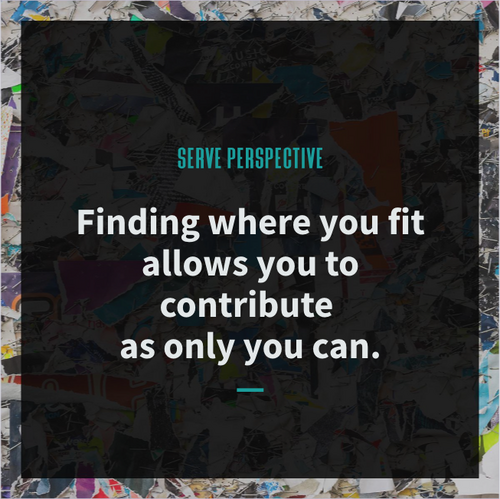
Pray for your place in God’s kingdom.
God has created you to be gathered into a variety of collections. Psalm 133 celebrates the times that this getting-together works, and the unity that comes from it.
If you’re doing this Spotlight in a group, have a different member read each version of Psalm 133 while the rest of the group meditates and prays on its meaning.
How good and pleasant it is
when God’s people live together in unity!
It is like precious oil poured on the head,
running down on the beard,
running down on Aaron’s beard,
down on the collar of his robe.
It is as if the dew of Hermon
were falling on Mount Zion.
For there the Lord bestows his blessing,
even life forevermore.
Psalm 133 | New International Version
How wonderful and pleasant it is
when brothers live together in harmony!
For harmony is as precious as the anointing oil
that was poured over Aaron’s head,
that ran down his beard
and onto the border of his robe.
Harmony is as refreshing as the dew from Mount Hermon
that falls on the mountains of Zion.
And there the Lord has pronounced his blessing,
even life everlasting.
Psalm 133 | New Living Translation
How good and pleasant it is
when brothers live together in harmony!
It is like fine oil on the head,
running down on the beard,
running down Aaron’s beard
onto his robes.
It is like the dew of Hermon
falling on the mountains of Zion.
For there the Lord has appointed the blessing—
life forevermore.
Psalm 133 | Holman Christian Standard Bible
How wonderful, how beautiful,
when brothers and sisters get along!
It’s like costly anointing oil
flowing down head and beard,
Flowing down Aaron’s beard,
flowing down the collar of his priestly robes.
It’s like the dew on Mount Hermon
flowing down the slopes of Zion.
Yes, that’s where God commands the blessing,
ordains eternal life.
Psalm 133 | The Message
God has created you to be gathered into a variety of collections. Psalm 133 celebrates the times that this getting-together works, and the unity that comes from it.
If you’re doing this Spotlight in a group, have a different member read each version of Psalm 133 while the rest of the group meditates and prays on its meaning.
How good and pleasant it is
when God’s people live together in unity!
It is like precious oil poured on the head,
running down on the beard,
running down on Aaron’s beard,
down on the collar of his robe.
It is as if the dew of Hermon
were falling on Mount Zion.
For there the Lord bestows his blessing,
even life forevermore.
Psalm 133 | New International Version
How wonderful and pleasant it is
when brothers live together in harmony!
For harmony is as precious as the anointing oil
that was poured over Aaron’s head,
that ran down his beard
and onto the border of his robe.
Harmony is as refreshing as the dew from Mount Hermon
that falls on the mountains of Zion.
And there the Lord has pronounced his blessing,
even life everlasting.
Psalm 133 | New Living Translation
How good and pleasant it is
when brothers live together in harmony!
It is like fine oil on the head,
running down on the beard,
running down Aaron’s beard
onto his robes.
It is like the dew of Hermon
falling on the mountains of Zion.
For there the Lord has appointed the blessing—
life forevermore.
Psalm 133 | Holman Christian Standard Bible
How wonderful, how beautiful,
when brothers and sisters get along!
It’s like costly anointing oil
flowing down head and beard,
Flowing down Aaron’s beard,
flowing down the collar of his priestly robes.
It’s like the dew on Mount Hermon
flowing down the slopes of Zion.
Yes, that’s where God commands the blessing,
ordains eternal life.
Psalm 133 | The Message
Sing along with (or listen to) this song to close out this Spotlight.
Feel free to sing along or simply listen. Do what makes you comfortable—but do whatever helps you focus on the song's meaning best.
Feel free to sing along or simply listen. Do what makes you comfortable—but do whatever helps you focus on the song's meaning best.
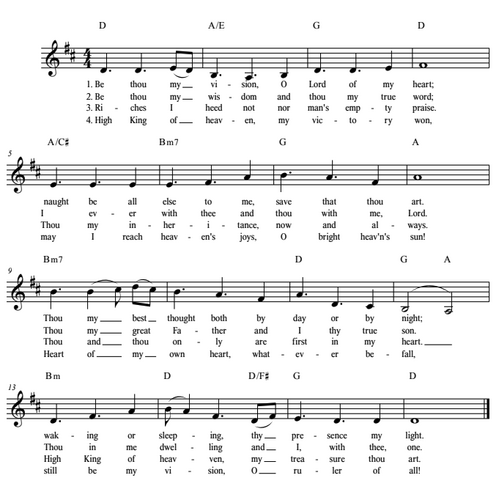
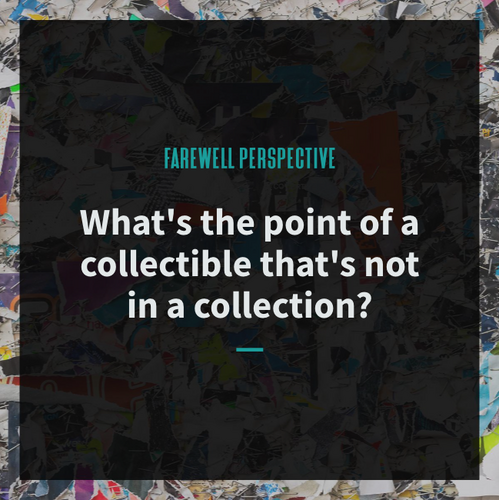
Let's wrap things up by taking a look at what's Current at Illume.
Tap on the buttons in the frame below to see what’s currently happening at Illume—information on everything from current and upcoming online content to live events and opportunities to serve in the community can all be found here.
Tap on the buttons in the frame below to see what’s currently happening at Illume—information on everything from current and upcoming online content to live events and opportunities to serve in the community can all be found here.
Posted in On Letting Guilt Collect

No Comments